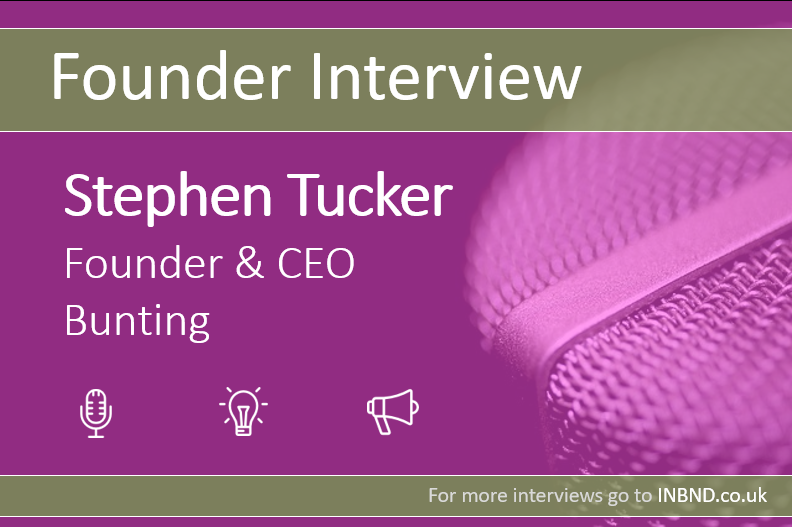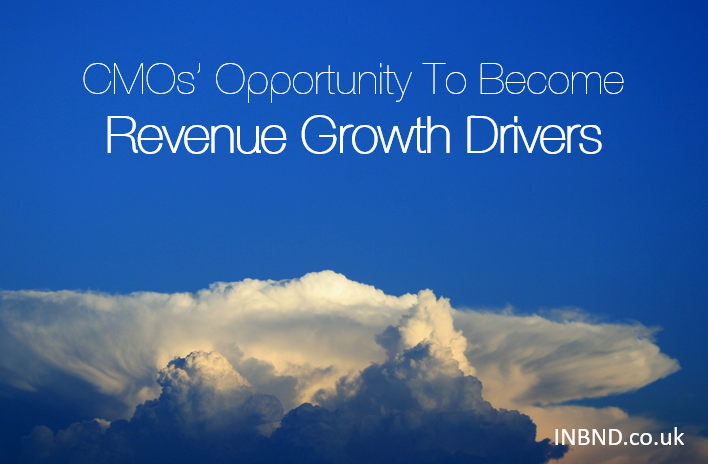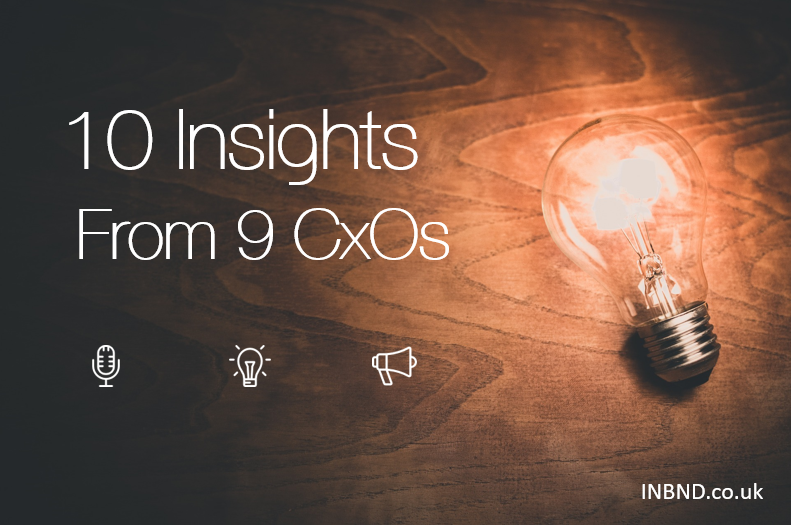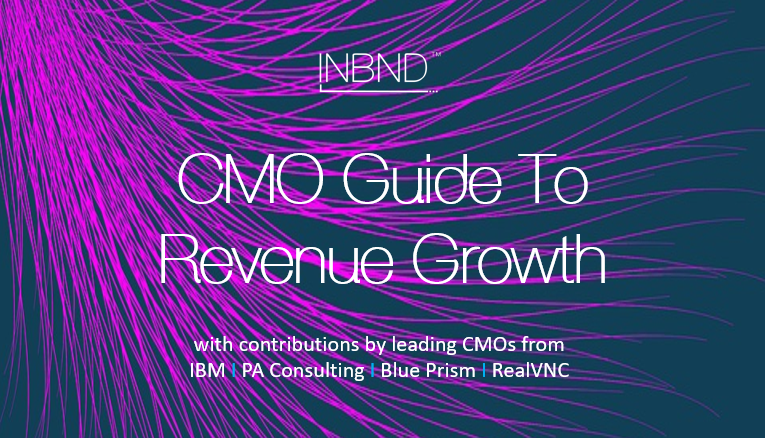Company Founder Interview – Stephen Tucker: I first met Stephen, the Founder and CEO of website personalisation software Bunting, a while ago after an event in Manchester. I recently caught up with Stephen to ask him a couple of questions about his inspiration to start his own company. Quite unexpectedly, his answers were amongst the most inspiring I have come across and I am delighted to be able to share them here.
Stephen Tucker is an excellent example of how passion, self-discipline and tenacity can beat higher education and money in the world of start-ups. Much like the Wright Brothers beat better funded competitors, Stephen Tucker’s Bunting is a challenger that was created through hard graft. Bunting is now beating global players on – what they might call – their own turf.
Bunting is a website personalisation software solution, allowing eCommerce retailers to easily measure usage data and adapt the way their web content is displayed to individual visitors. The data-driven solution automates many of the processes involved, while improving conversion rates and online revenue. Rarely have I seen a more intuitive solution in action.
The story behind Stephen – and how Bunting became what it is today – is as unique as it is personal and interesting. Read on for the full transcript of this interview:

Hi Stephen, it’s good to see you again despite your busy schedule. Let’s start at the beginning: Have you always wanted to start your own business? What inspired you?
I love building cool stuff – it’s an innate desire of mine. And I’ve always loved having the freedom to let my imagination run wild. I’m not sure why, because neither of my parents are overly creative – my sister and I both seem to have that gene though. As a kid it began with Lego, and as an adult it progressed to programming – I did also find myself playing with Duplo again the other day when I visited friends and their new baby.
But after I got a regular job aged 18 I found myself increasingly frustrated by only being able to do what I loved doing in the evenings and weekends. So, when I first started a business aged 18 I did it primarily as a means to escape. For me, a business was – and still is – quite simply, the medium that allows me to do what I want without any boundaries. So, aged 18 I learned all about web design, which back then was still reasonably new. My goal was to setup an online business selling personalised gifts that couples could give each other to express their affection. I couldn’t afford a web design company back then, so I spent about a year creating this website. The company bombed. I made about £50 from it and it was going nowhere. But what I did get from it, at that early age, was a massive buzz and a ride along a huge learning curve.
That early experience taught me a lot about technology, although perhaps not a lot about running my own business. That came a little later. At age 19 I got into freelance web design work. I worked a 9-to-5 admin job at the time, so I had to do most of the work in the evenings and at weekend. I even took time off work to do my freelance work. I didn’t have any money to go on holiday anyway, so it was a good use of my time off! This is where I learned some of the basics of business, e.g. how to deal with customers, running competitor analyses etc. I grew a lot as a business person during that time and it added to my tech knowledge.
A couple of years later that led to me moving from freelance work to starting my own web design company. I had a business partner and it went really well for five years – we even had an employee! But eventually we decided to part ways as we had different visions of where we wanted to take our careers.
So how did Bunting come about?
It’s an unlikely story, actually. I had setup a new company called SiteNow, which was a franchise model around web design agency services. I was running Google PPC campaigns to attract business. It wasn’t just about making money, it was just as much about proving that the business model worked. While I was trying to prove the concept, I saw my revenue grow tremendously over the first three months. Most of that growth was down to PPC ads. Then something strange happened.
Almost overnight my PPC spend rocketed threefold. The weird thing was that I was getting more clicks, but not more conversions or new customers. It was threatening my business, which relied heavily on PPC. But instead of giving up – after all it was providing a good revenue stream, pretty much from a standing start – I wrote a piece of software to track and profile traffic originating from Google PPC. What I found was that traffic was coming mainly from 3 IP addresses. The traffic was coming in blocks during different parts of the day. That suggested it was a person. After doing some more detective work I found it was coming from a local competitor down the road. He was trying to put me out of business by systematically clicking my PPC ads time and time again. I threatened him with legal action and got him to stop.
This whole episode triggered the idea for a Click-fraud solution. So, I started turning the piece of software I had created for my website into a Click-fraud tool. It identified suspicion or unusual click behaviour for retailers. But when I launched it into Beta I noticed a fundamental flaw in the business model. The solution relied on free trials, but when retailers tried it many of them would find that nobody was targeting them and would not sign up for the solution. It made selling the product in that form very difficult.
So instead, I decided to collect all click and traffic data. It was a natural progression from the tool as it stood. That allowed me to extend it into a full website personalisation tool instead of focusing on Click-fraud. We did a full pivot and Bunting was born.
There is a certain sense of irony in all of this. During that period of being the subject of Click-fraud, it became quite depressing because cost was spiralling out of control and my business was in jeopardy. Yet it was that experience that led to me creating a product and a company that became the best business I could be in.
In the years that have passed since the early days and throughout the Bunting years, my interests have moved from programming to just about everything area involving large scale tech business growth. In terms of excitement, nothing else comes close.
What is more difficult: winning your first 5 paying customers or the next 20? And why?
This varies from business to business. In my first web design business, the first 5 paying customers came pretty easily – mostly friends and family. To get the next 20 I had to learn about marketing, and invest in it. However, with Bunting it was quite the opposite. A big-data app of great complexity, it took over 2 years of full time software development before the app was even able to support its first customer. After that the following 20 were pretty easy. I feel the answer really varies based on whether your business is product or service-based.
Because of the long development cycle, I bridged the revenue gap for almost two year with money from running my previous company, plus savings from my time running SiteNow. I kept everything very skeletal, because I knew it was going to be a long slog to get it right. You’ve got to be either crazy or stupid to attempt it alone – I’d like to think I’m more on the crazy side! I worked from Starbucks instead of spending money on an office. I was the guy who made his cup of coffee last all day. I paid myself very little, had no holidays etc. I was effectively in a state of hibernation.
If you could see my cash reserves in a chart, you’d see it nosediving towards the end. It got down to about a month’s worth of cashflow, before the first Bunting customer came on board. After that many more customers followed and I had proven the business model.
What enabled you to grow your business?
Self-discipline. Everything else; knowledge; money; connections; can all be acquired, but only if you have the self-discipline to earn them. In my case I started with mediocre GCSE grades, came from a family with barely any money, and arrived in Manchester knowing nobody. Today we have some of the hottest big-data analytics tech on the market, which is competing – and beating – some of the largest companies in the world. We have influential, well-connected investors based in Silicon Valley, and our revenue is growing at an incredible pace. Self-discipline provided the basis for all of that.
Other factors played a part as well, of course. One key moment was when we got an article about Bunting published online. A good friend of mine, who now works for the company, had laid the ground work by seeding content online. After that we got the article and as a result it massively boosted our enquiries – both in terms of volume as well as the quality of leads we were getting. It was highly lucrative and provided a lot of great impact on our SEO. We started to ramp up in search engines, which led to even more enquiries.
But growth doesn’t happen overnight. I remember at one point I was well into the second year of developing Bunting and I was still losing money. I had just bought a new scribble pad and wrote “New business ideas” on the first page. I started brain storming and was close to giving up on Bunting. I was in one of those dark phases when you’re tired and you think things just won’t come to fruition. But luckily, I slept on it and decided to push on. It wasn’t long after that when the first Bunting customer came along.
It’s still as stressful today, but at least it’s now a well-proven product, which it wasn’t back then. That first customer was as much about validation as it was about money. Today the stress is more about building and growing than validating the business. We have many more people on board and together we’re expanding the business.
The next phase of growth is very exciting. We secured our latest investment this year after I met our investor, who is the former Head of Corporate Strategy at Microsoft, at a networking event. It took 12 months of drip feeding info and updates about the business to maintain his attention. I had intended to go to Silicon Valley to raise investment and sent him an email to gauge his interest in meeting up while I was there. I got an email back 10 minutes later saying that he was in London and that he could meet a couple of days later. I thought “sh** I haven’t got anything prepared”, but to cut the long story short, I went to meet him, demo’d Bunting and he committed to invest there and then. I never went to Silicon Valley in the end.
What can Sales and Marketing professions learn from each other?
To work together to better understand the customer. I’m more of an engineer though, so I don’t have much insight into either. That said, my experience shows that if you understand your product and are enthusiastic about it, it creates enthusiasm on the customer side too. If you compare that to your average sales person who just pushes to close a deal, it’s quite a different approach. If you understand the customer’s need, which marketing should help facilitate, then sales should be able to sell by actually helping the customer solve a problem.
What is the best business advice you have ever been given?
Be aware of your ego, and its desire to always want more. It is an illusion that can never be fulfilled, and unless you identify that illusion, you will never let yourself be happy.
What is your favourite business book, and why?
Let me have two? First the E.Myth Revisited. It teaches entrepreneurs the importance of systemising everything within their business. The result is greater scalability and control, with less stress and anxiety. Secondly, A New World by Eckhart Tolle. Not strictly a business book, but one that’s had a profound effect on the way I look at life, and thus has impacted my business. In-line with my previous comment, it teaches you to be aware of your ego, and to live a happier life.
What is next for Bunting?
Our 2017 roadmap is incredibly exciting – but you’ll just have to wait and see.
Thanks for sharing your experience and story with us Stephen.
I thoroughly enjoyed it, thanks for your interest!
For more information about Bunting, go to www.getBunting.com. If you’d like to connect with Stephen, you can find him on Linkedin (https://uk.linkedin.com/in/steve-tucker-82124460)
About INBND Growth Marketing:
INBND provides Growth Marketing Consultancy Services to B2B organisations.
Lev Cribb started INBND to address one big problem: the disconnect between lead generation and sustainable revenue growth. Or in other words, between marketing and sales. He saw too many companies grow inspite of their lead generation efforts, not because of them. INBND brings the passion, expertise and focus to drive change in your organisation. Get in touch today and find out how a modern approach to revenue generation can help accelerate your growth.











Leave A Comment